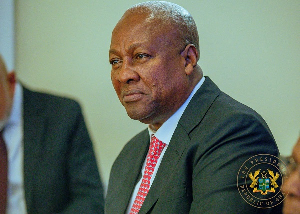You would agree that we have had a very successful webinar around a very timely conversation.
We were honoured to have had Governor Ernest Addison deliver the key note address, setting the tone for the technical presentations and animated discussions which followed.
Permit me to reiterate three key truths that have been at the core of the discussions at this webinar:
Banking is inherently risky.
The pandemic has only exacerbated these risks to unprecedented levels in a way that severely impact business, financial, and operational resilience of the industry if not carefully managed. As has been said by earlier speakers, we are dealing with more pronounced balance sheet risks from asset impairment, higher provisioning, and lower profitability, and heightened operational risks from disruptions to service delivery and cyber risks. Add to these traditional risks, less talked about risks such as the looming climate risk, and financial exclusion risks with implications for medium-to-long-term macro-economic resilience.
Measuring Covid-related risks to the banking sector is challenging, given the many unknowns associated with the evolving pandemic and the lack of modern-day precedents (not even the global financial crisis) to guide bankers.
That said, identifying, measuring, and mitigating these risks remains critical to maintaining the financial and operational resilience of the industry, the stability of the financial system, and the stability and recovery of our economic.
The Bank of Ghana expects the banking industry to be proactive in assessing and managing these risks in line with relevant provisions of the Banks and Specialised Deposit-Taking Institutions Act of 2016 and the Corporate Governance Directive of 2018. In particular, our regulatory framework designates risk oversight as a key governance function, with the Board of Directors of banks bearing overall responsibility.
We expect banks to establish and constantly strengthen risk management structures, policies, strategies, and processes in keeping with the fast evolving business environment. Importantly, we also expect that effective risk management becomes embedded in the business culture of banks, supported by strong management information systems for controlling, monitoring and reporting risks.
As regulators, we will remain vigilant in monitoring the risks faced by the banking industry. Let me assure you that you are not alone as you face these risks. It is in our collective interest - banks, your customers, the regulator, and our economy - as a whole that you stay on top of these risks.
We continue to explore effective means to carry out our mandate to help keep risks in the industry under control. For example, our enhanced off-site examinations regime since last year has involved additional reporting by the industry to help ensure that we are able to assess evolving risks even in the absence of on-site examinations during the pandemic. Our periodic stress tests are also helping us assess the level of capital buffers available to absorb potential losses as the pandemic rages on, and our new supervisory surveillance system - ORASS - designed by VIZOR gives us data mining and analytical capabilities using artificial intelligence, helping us spot early warning signs as they emerge.
Our new sustainable banking reporting template is also designed to ensure that banks report on their management of environmental and social risks, a critical aspect of Ghana’s sustainable banking principles meant to promote sustainable economic growth.
Lastly, we continue to strengthen the capacity of our supervisory team to be able to sharpen their supervisory judgment including their ability to evaluate the effectiveness of risk management and overall governance of banks.
On your part, the industry must ensure that capital buffers built over the last couple of years are preserved, operational resilience is maintained, and depositors’ funds are protected, while continuing to support economic growth as far as the strength of banks’ balance sheets would allow. Essentially, Boards must carefully balance these sometime competing objectives, to ensure optimal outcomes.
I believe that the thoughts shared by Governor Addison in his key note address and the technical insights provided by the Aptivaa team will all go a long way to help banks navigate the complex and uncertain future we face. May we not waste this pandemic and the hard lessons we have learnt from it. The Bank of Ghana remains committed to continuing to engage the industry as we jointly pursue financial stability and macroeconomic growth and stability.
Let me now conclude by again commending the Ghana Association of Bankers and Aptivaa for this timely webinar, as well as participants at this webinar who have stayed engaged throughout. Long live Ghana’s banking sector, and may God make our dear nation great and strong.
Business News of Thursday, 18 February 2021
Source: bog.gov.gh













